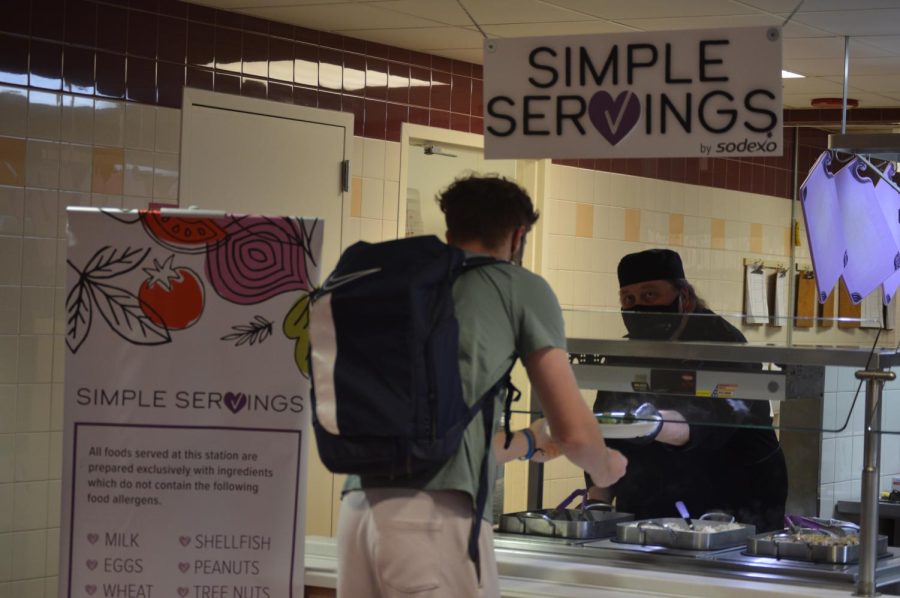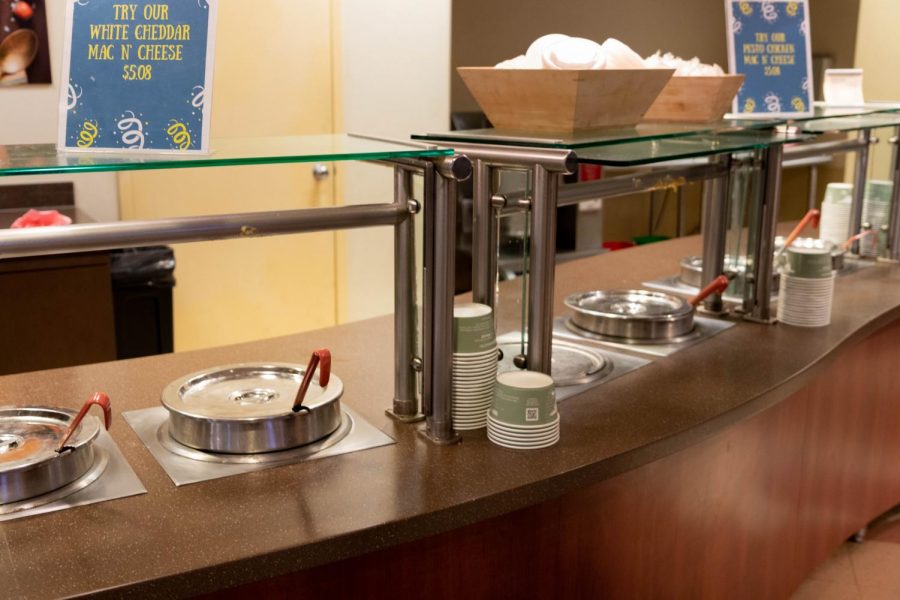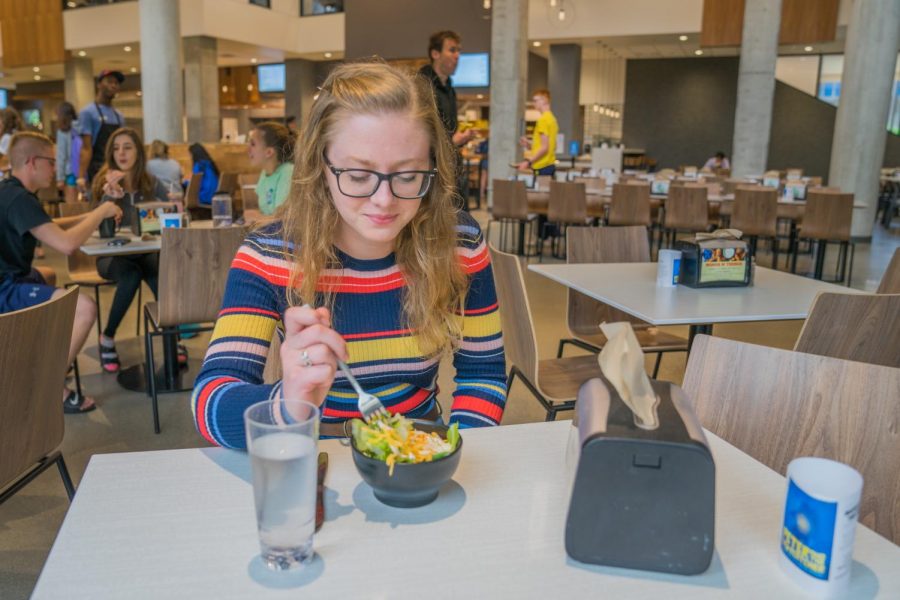While there are five main dining halls on campus, some students with dietary restrictions say they often struggle to find options and feel left out.
“It’s once in a blue moon that you get something good that meets your restrictions,” Shannyn Donohue, a sophomore in the College of Communication, said.
Donohue is vegan and said she usually eats at the Alumni Memorial Union for its wider variety of healthier meals. Problems arise on weekends when the AMU’s dining options aren’t open, though, and she has to eat at other dining halls.
Maeve Cahill, a sophomore in the College of Health Sciences, faces similar issues. Cahill has celiac disease, causing her to have a severe allergy to gluten.
When I see there are no options, I lose my appetite and get upset. I have other things to stress about,” Cahill said. “I feel like I’ve totally eaten things I shouldn’t have because I’ve been too hungry.”
Marquette’s website features only two meal plans for students: One for residents, which is $2,515 per semester and one for commuters, which is $460 a semester. While students can opt out under special circumstances, there is no mention of this on the website.
Nick Krajcik, the operation manager for Marquette’s dining services, has been working with Sodexo for 20 years. He said Sodexo uses great care and safety when working with food, especially at Simple Servings.
Simple Servings is a food station on campus that avoids the top eight allergens and cross-contamination.
“At Simple Servings, everything is purple. There are purple cutting boards, purple sanitation buckets, it’s to make sure everything is used in here and not brought from another kitchen,” Krajcik said. “Sodexo follows an extensive hazard program from the minute it comes off the semis to the food being on the table.”
Marquette University also has a registered dietitian, Lucas Flaherty. However, some students said the few resources that the dining halls have to fulfill dietary restrictions tend to run out fast.
“You have to go at a certain time otherwise food runs out,” Cahill said. “To be completely safe I’d have to make my own food.”
There have also been instances where students have become physically ill from eating the food.
Caroline Bielski, a junior in the College of Arts & Sciences, is one of the people who got sick from the Straz dining hall in spring of 2021.
“My friends and I had tacos from Straz for lunch. By the afternoon, I started feeling sick. Then I started vomiting, and I had a fever and chills,” Bielski said. “Two girls on my floor went to the hospital because they had lost so many fluids.”
Victor Martinez, a senior in the College of Communication, also got sick at the Straz dining hall during that same time.
“I got the tacos. No one else in my group got the tacos, and the next day I had bad stomach pain. My mom got me and brought me back home. I took a COVID test, and it turned out negative. When I got back, I heard a whole floor on Straz got sick from food poisoning,” Martinez said.
Martinez had trouble eating in the dining halls after that.
“I stayed away from dairy or anything that could get me sick. I avoided Straz for a while,” Martinez said.
Bielski also struggled with trusting the dining halls after the incident.
“We (her friends) definitely got the ick from Straz, we had a hard time trusting it. I could not eat at Straz for two or three weeks after because I was so scared of getting sick again,” Bielski said. “We felt we all had to get over it because we had purchased a meal plan. We were pushed into a hole dug by the university.”
These students hope for change sooner rather than later.
“I had a different view last year, I was very naive and thought I could make it work. This year I’m starting to get sick of it. I don’t want to do this anymore, it’s so discouraging,” Donohue said.
However, Donohue said that although the dining halls have their issues, it’s not the fault of the hardworking employees.
“It’s frustrating because every dining hall employee is so nice. It’s not their fault because they don’t make the menus,” Donohue said.
Tasha Ward is a Sodexo employee working at the Simple Servings station in The Commons dining hall. Ward said she has always loved working with food, and her own food allergy made her passionate about cooking for others with similar restrictions.
“These days, having allergies is very common. Simple Servings gives them an extra option,” Ward said. “Food has always been my passion. You can make someone have a better day by giving them a good, hot meal.”
Martinez agrees with Donohue when he said that working with food always comes with risks.
“There’s always a chance there are going to be one or two mishaps that end up in food poisoning or other issues related to food. That’s just what you deal with when you’re trying to serve an entire campus,” Martinez said. “It’s way too much to always be completely airtight.”
This story was written by Jolan Kruse. She can be reached at jolan.kruse@marquette.edu.






